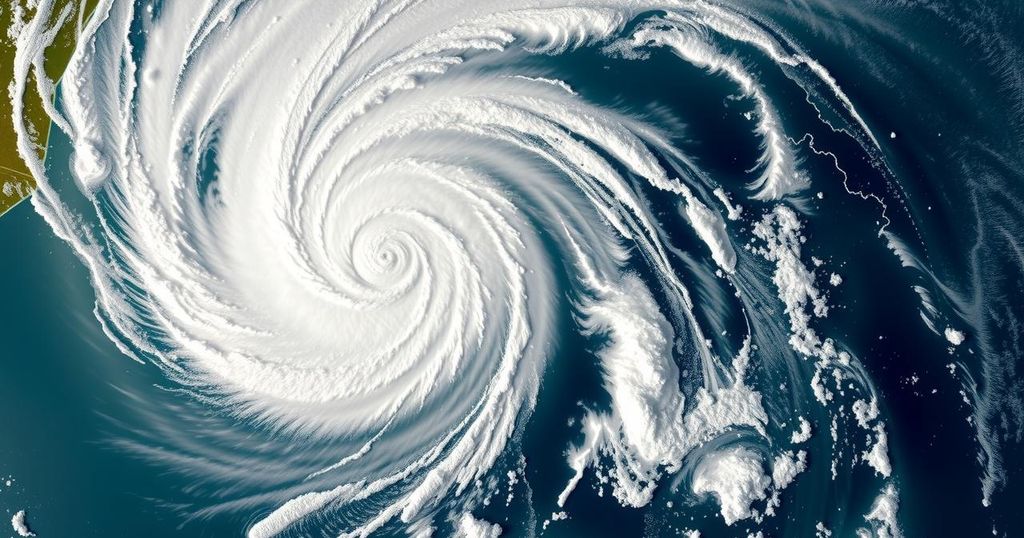Tropical Cyclone Dikeledi’s Impact on Madagascar and Mozambique

Tropical Cyclone Dikeledi struck Madagascar and Mozambique in January 2025, causing at least three fatalities and significant property damage. The cyclone, which registered wind speeds up to 160 km/h, led to the destruction of homes and schools, and substantial flooding in various regions, prompting evacuations and emergency responses.
Tropical Cyclone Dikeledi impacted Mozambique significantly after striking Madagascar, leading to numerous casualties and substantial property damage. Making landfall in Madagascar’s Antsiranana province on January 11, 2025, the cyclone brought winds reaching up to 155 km/h (96 mph), resulting in at least three fatalities, damage to 370 homes, and destruction of 69 schools. Over 5,210 individuals were affected by the cyclone’s wrath, with critical infrastructure also suffering extensive damage as reported by the United Nations Office for the Coordination of Humanitarian Affairs (UN OCHA).
Subsequently, Dikeledi proceeded to Mozambique, brushing the northern coast near Nacala, Nampula Province, on January 13, unleashing winds that intensified to 160 km/h (98 mph) and provoking severe rainfall that led to localized flooding across Nampula and Zambezia provinces. The Mozambique National Institute of Meteorology (INAM) issued Red cyclone warnings, the highest alert level, emphasizing the potential for heavy rainfall exceeding 200 mm (8 inches) and strong thunderstorms. Authorities in regions impacted by the cyclone postponed school reopenings and canceled flights as safety remained a priority.
As Dikeledi moved past Mayotte, which was recovering from Tropical Cyclone Chido, approximately 14,500 people sought refuge in 79 emergency shelters, evidencing the widespread disruption caused by tropical weather systems in the region.
Tropical Cyclone Dikeledi is a significant meteorological event that impacted eastern Africa, particularly Madagascar and Mozambique. Cyclones are characterized by their circular storm systems, typically forming over warm ocean waters and resulting in extreme weather conditions, including heavy rainfall, strong winds, and subsequent flooding and destruction. Tropical Cyclones have historically posed serious threats to infrastructure and human safety in affected regions, often necessitating international humanitarian responses. The aftermath of Dikeledi, particularly in Madagascar, included loss of life and severe infrastructure damage, drawing attention to the need for efficient disaster management and recovery efforts.
In conclusion, Tropical Cyclone Dikeledi caused considerable devastation across Madagascar and Mozambique. With fatalities reported and extensive infrastructure damage, the cyclone’s impact reinforces the importance of preparedness and response strategies for tropical weather events. The ongoing threat of flooding and further weather disturbances continues to place affected communities at risk, highlighting the necessity for vigilant disaster management efforts.
Original Source: watchers.news








